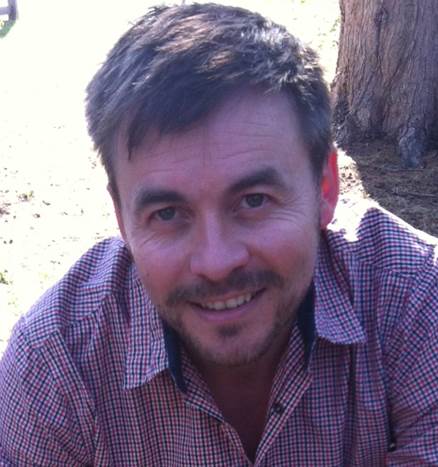Cast of Wonders 646: As Brittle as Granite
Show Notes
Image by darrenquigley32 from Pixabay
As Brittle as Granite
by Matt Tighe
Lisa’s father has a crack in his face. It isn’t even a small one, something that she could maybe dismiss as a shadow cutting through the warm afternoon light of the sunroom. It runs from his forehead straight down through his left eye, splits his cheek in half, and just touches the very corner of his top lip. The inside of the crack is grey stone with pale flecks of mineralisation.
“You have cracked, father,” she says. The words come out as they should, steady and measured.
When his eyes move to her, the part of the crack that runs through his eye also moves, sliding sideways with his gaze. He is calm.
“Tell your mother,” he says.
She finds her mother in the laundry, folding the bedsheets. Lisa likes the laundry room — it smells of detergent and lavender and cleanliness, and it is a place where worn things are cared for.
“Mother,” Lisa says. “Father has a crack in his face.”
Her mother looks at Lisa. She does not frown or gasp. She does not cry. These are things that their family does not do. She finishes with the sheet she is folding and puts it down.
“He will last for a day or so,” her mother says. “If he stays calm.”
Lisa wants to cry. She wants to see her mother cry. She wants her father to hold her and tell her everything will be alright. But she does not cry, and she does not speak of these things that she wants. They are not short-lived limestone people like the Andersons next door.
Her family is granite.
Her father eats dinner like it is a normal evening, and then he helps with the dishes. Afterwards, he sits with Lisa’s mother and they watch a documentary on the television. Her parents hold hands as they sit, like they do every night, but they do not talk or even look at each other. Granite is hard, but it is brittle.
When Lisa kisses her father goodnight, his stubble scratches her lips, and she sees he has another crack in his face.
Lisa goes downstairs in the morning to find her father making pancakes. They are always thin and chewy and bland, but they are her favourite breakfast because sometimes when he is watching them cook and waiting to flip one, her father hums to himself. She likes the soft, tuneless little sound very much.
“Can you get the newspaper please, dear?” her mother asks. She doesn’t really need to ask — Lisa gets the paper every day, just as her father reads it every day. Her father with his paper is a bit like his humming over pancakes.
“Quickly,” her father says. “Breakfast is nearly ready.”
When he looks at her she sees more cracks in his face. A small piece has broken away, leaving a pale grey divot of rock exposed below one eye.
He is not going to make it through the day.
She runs out of the door, pretending she is hurrying because he has asked her to. The sky is clear and blue and very unfair.
“Good morning Lisa.”
The voice is too cheerful, just like the day is too pleasant.
Gerry is short, and thin, and has dark hair that flops into his eyes. He is grinning on the other side of the low fence between the houses — he is always grinning, or frowning, or yelling. He is younger than Lisa, but already has deep wear marks on either side of his mouth. She can see the white chalky limestone there, and in the deep crease between his eyes.
“Hello, Gerry,” Lisa says, and picks up the paper.
“What’s wrong?” he asks. She does not know how he can tell. His grin is gone, his frown sudden and deep. It is unnerving, the changes he goes through.
It is breathtaking.
“My father is cracking,” she says. Her voice is steady, as it should be.
“My parents have some cracks,” Gerry says. He doesn’t understand.
“Granite is hard,” Lisa tells him. “But brittle. We can last a long time, but we have to be careful.”
He still looks confused.
“Granite does not wear down easily,” she says. “When we start to break, it does not stop.”
And then he gets it. He frowns, and there is deep sympathy in his eyes now. It is so dizzying, everything he is being right there on his face.
“I’m so sorry Lisa,” he says.
“It is how we are.” She wants to say more, but does not. It is always strange, talking to this soft limestone boy.
The Andersons let everything out. They wear so quickly. Lisa does not understand it.
“Well, I’m really sorry,” he says, and reaches across the small fence and touches her arm. “Let me know if you need to talk.”
By mid-afternoon Lisa’s father has lost one eye and what remains of his face is a spiderweb of cracks and broken pieces. When she takes him a cup of coffee in the sunroom, he has to use his left hand as his right has crumbled away, leaving only small pieces on the floor.
“Thank you,” he says, his voice still clear. Lisa tells him he is welcome, and he nods.
“Tell your mother it is nearly time, please. I cannot hold it all in much longer.”
Lisa walks quickly from the room.
Her mother is in the laundry room again — just standing there, staring at a pile of folded shirts. They are flannelette work shirts, the ones Lisa’s father wears when he rakes leaves and clears the gutters.
Her mother’s face is smooth, as unmarked as always.
“Yes, dear?”
“Father says it will be soon.”
Her mother runs both hands down the front of her dress. It is a nice dress. The one with orange flowers that her father bought her.
“Very well,” her mother says. “Shall we go?”
Lisa knows she should say yes. They are granite, after all.
Instead, she shakes her head.
“You do not have much time,” her mother says, and then goes past her daughter out of the laundry.
Lisa doesn’t go looking for Gerry — he is just a limestone boy, and soft. It is only a coincidence that she walks out and stands in the front yard, near the fence, near where they talked earlier. And it must be a coincidence that he is just there, sitting on the front porch of his house. He comes down to the fence.
“Did… did it happen?” he asks. She can hear so much in his voice. It is all right there, right on top.
She shakes her head. She could speak, but she doesn’t want to hear her own bland response, not straight after his voice.
“I don’t understand,” he says, as if she had asked, “how you can keep so much in.”
She does not understand how he can let so much out. Lisa has seen Gerry’s parents plenty of times. Their weathered faces are a map of white, chalky creases from tears and frowns and smiles. Their smile marks are especially deep, worn into the soft rock of their being as if their pleasure were running water. Once, Lisa saw Gerry’s mother laugh so hard that chalky dust floated down like fine mist.
“You wear away so quickly,” she says, and Gerry’s sudden smile is bemused.
“Do we?” he asks. “It doesn’t seem like it.”
She is back in the sunroom in time. Of course she is.
Her mother sits on the arm of her father’s chair. They are holding hands. His only has two fingers left.
He looks at Lisa with his one eye. More of his face is cracked and broken grey stone now, but his mouth is still mostly there.
“Are you both ready?” he asks, like it is something happening to them. Which it is, Lisa knows. She is not ready, but she is granite. She nods.
“Yes, dear,” her mother says.
Her father draws a deep breath. And smiles.
“I could not have wished for a better life than with both of you,” he says. There is a breaking sound as part of his body slumps inwards.
“You have made everything worth it,” he says, and a long piece of grey stone falls from his already broken face.
“I love you both very much.”
His smile widens, and a tear runs from his one eye. And then he is gone, breaking apart into small pieces of grey stone, pieces flecked with minerals that shine in the afternoon sun.
Lisa sits with her mother, and tries not to break herself.
Granite is hard, but it is so very brittle.
“It happened,” she says to Gerry as she sits on the front steps, but she does not look up. He was there when she came outside. Maybe he had just come outside again himself. Maybe he had been waiting.
He says nothing.
“I might break,” she says finally. Her voice is conversational.
She is surprised that she did not crack, split right down the middle, sitting there in the sunroom. She had thought her mother might, maybe just sob and crumble right there next to her husband, but when Lisa had looked at her, her mother had just nodded.
“I’m not going anywhere,” she had said.
That had been all, but it had almost been too much. It might still be too much.
Now, she looks at Gerry. He already has two soft tracks of white where his tears usually run down his face, and there are fresh wet lines there now.
“Don’t cry,” she says. “You will wear yourself down.”
“Can’t you cry?” he asks. There is no accusation in his voice. Not even curiosity. It is more like a plea. Like he still has hope she can be something else.
“No,” Lisa says, “I have to be careful, if I want to last.”
They sit together. Lisa does not shed any tears. She holds herself tightly. She keeps it all in.
“I’m so sorry,” Gerry says.
She does not reply. She watches him cry, and wonders how long it will be before she breaks.
Host Commentary
As a geologist I absolutely loved this concept from the get go, but initially I didn’t rate it as high as I probably should have. I found the ending so very sad that she cannot weep for the loss of her father, she cannot express her feelings, her grief, or she too will break. This is one of those stories that really grows on you with the re-reading and it really is a beautiful metaphor for a family in which emotions are repressed rather than expressed as the limestone family do. I also love that Gerry and Lisa recognize that they don’t understand each other’s experience, because of their make up and up bringing, but regardless of that they are still there to feel for and comfort one another. That’s true friendship, true allyship and I’m always here for that.
About the Author
Matt Tighe

Matt lives on a small farm in south eastern Australia with his amazingly patient wife and kids, Sherlock the dog and Mycroft the cat. He is addicted to listening to audiobooks while running. His short stories can be found in Nature Futures, The NoSleep Podcast, upcoming in Daily Science Fiction and Cossmass Infinities, and elsewhere. He tweets very sporadically at @MKTighewrites.
About the Narrator
Dani Daly




